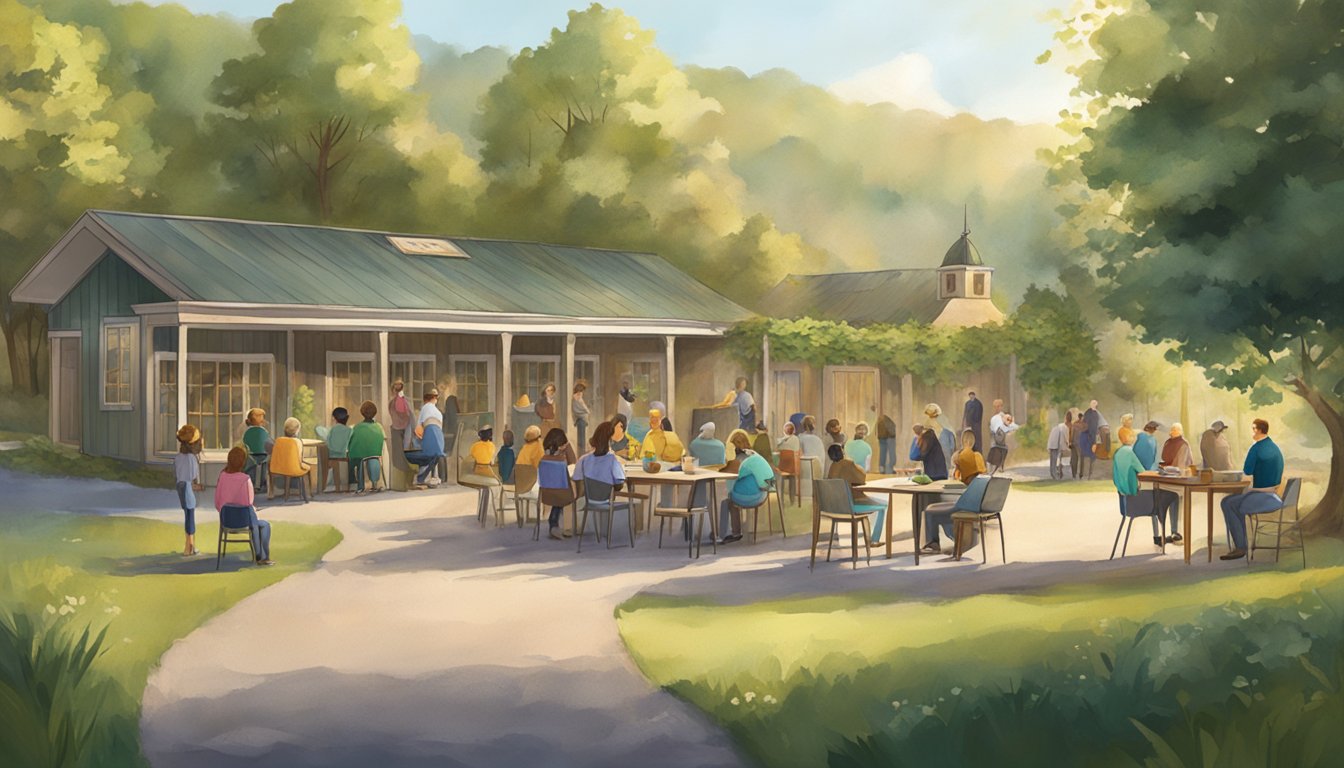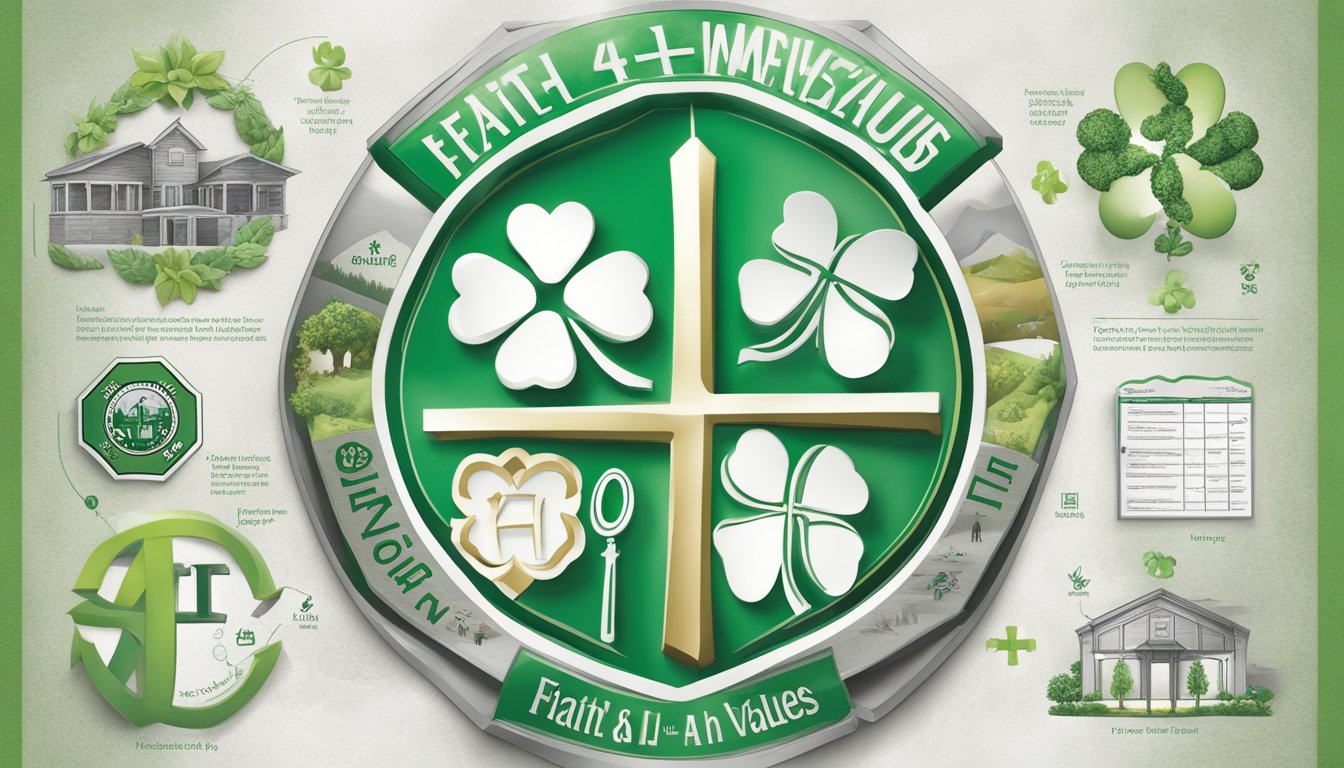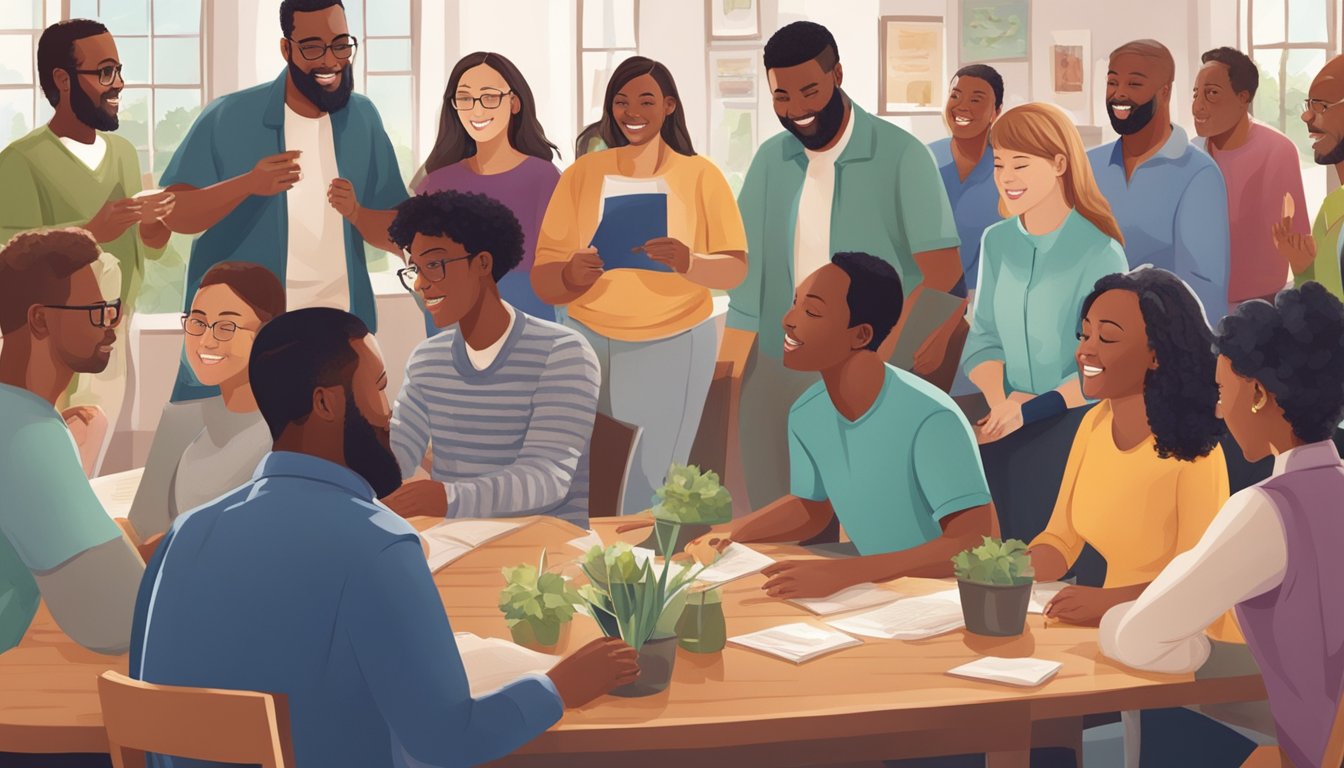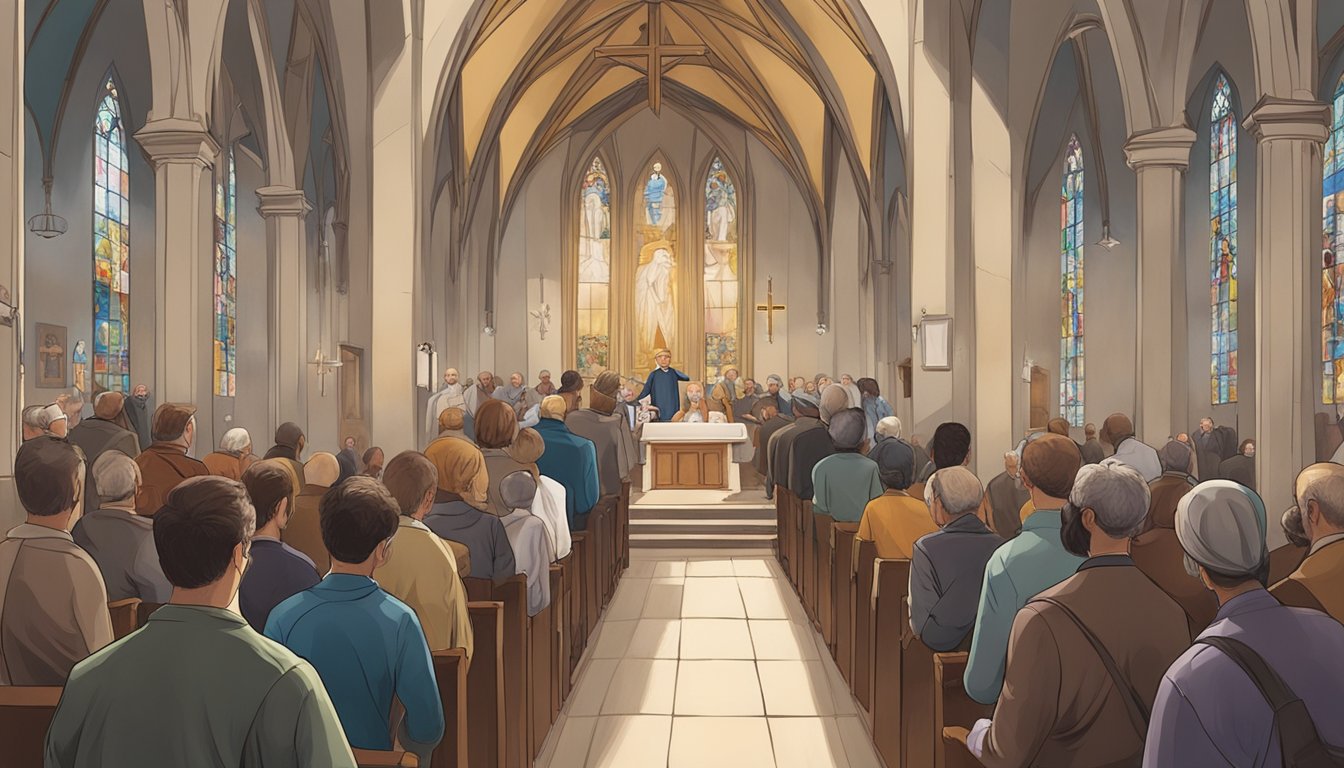4-H is a youth organization that has been around for over 100 years, with its roots in rural America. It focuses on developing young people’s skills and character through hands-on learning experiences. One question that many people have asked about 4-H is whether it is a Christian organization or not. This is because there are certain values that 4-H promotes, such as honesty, integrity, and community service, that are also central to Christian beliefs.

While 4-H is not a Christian organization, it does have a strong focus on moral and ethical values. The organization’s mission is to “empower youth to reach their full potential, working and learning in partnership with caring adults.” This mission is carried out through a variety of programs and activities that are designed to help young people develop leadership skills, learn about agriculture and the environment, and participate in community service projects.
Key Takeaways
- 4-H is not a Christian organization, but it does promote moral and ethical values that are central to many religions, including Christianity.
- The organization’s mission is to empower young people to reach their full potential through hands-on learning experiences and community service projects.
- 4-H offers a variety of programs and activities that are designed to help young people develop leadership skills and learn about agriculture, the environment, and other important topics.
History of 4-H
https://www.youtube.com/watch?v=RHd93gxy_5U&embed=true
Jessie Field Shambaugh and the Founding

4-H is a youth organization that has been around for over 100 years, with its roots in rural America. The organization was founded by Jessie Field Shambaugh, a schoolteacher from Iowa, who wanted to create a club for young people to learn about agriculture and home economics. In 1902, she started the first club with three students, and by 1904, she had organized a statewide club congress. In 1910, she developed the clover pin with an “H” on each leaf, and by 1912, the clubs were called 4-H clubs. The four H’s stand for Head, Heart, Hands, and Health, which represent the four areas of development that the organization focuses on.
Smith-Lever Act and Cooperative Extension
In 1914, the United States Congress created the Cooperative Extension Service of the USDA by passage of the Smith-Lever Act of 1914. This act included within the CES charter the work of various boys’ and girls’ clubs involved with agriculture, home economics, and related subjects. The passage of the Smith-Lever Act also created the Cooperative Extension System at USDA and nationalized 4-H. By 1924, 4-H clubs were formed, and the clover emblem was adopted.
The Cooperative Extension System is a partnership between the United States Department of Agriculture (USDA), land-grant universities, and public universities. The system provides research-based information and educational programs to help people improve their lives and communities. 4-H is one of the programs that the Cooperative Extension System supports, and it is now the largest youth development organization in the United States.
In conclusion, 4-H is not a Christian organization, but rather a youth organization that focuses on developing young people’s skills and character through hands-on learning experiences in agriculture, home economics, and related subjects. The organization was founded by Jessie Field Shambaugh, and it became nationalized through the Cooperative Extension System at USDA.
4-H Mission and Core Values
4-H is a youth organization that aims to provide young people with intentional, high-quality learning experiences that promote positive interactions with adults and peers, sustained and active participation across time, and opportunities to make meaningful contributions to the world around them. The organization’s mission is to engage youth to reach their fullest potential while advancing the field of youth development.
Pledge and Motto
4-H has a pledge and motto that serve as the foundation for its programs. The pledge, which is recited by members at meetings and events, emphasizes the importance of citizenship, character, responsibility, respect, and service. The motto, “To Make the Best Better,” reflects the organization’s commitment to helping young people develop the life skills they need to become successful adults.
Emphasis on Head, Heart, Hands, and Health
4-H places a strong emphasis on the development of the whole person, which is reflected in its focus on “Head, Heart, Hands, and Health.” These four H’s represent the organization’s belief that youth development should encompass intellectual, emotional, physical, and social growth. By providing opportunities for young people to explore their interests, learn new skills, and engage with their communities, 4-H helps them develop the confidence, compassion, and honesty they need to succeed in life.
Overall, while 4-H does not have any religious affiliation itself, it welcomes members from all faiths including Christians. Many local clubs may choose to incorporate their own faith beliefs into their activities, but having those affiliations is optional and depends entirely on regional administration’s preferences.
Organizational Structure
https://www.youtube.com/watch?v=RcGCFX95ejE&embed=true

4-H is a youth development program that operates under the National Institute of Food and Agriculture (NIFA), which is part of the U.S. Department of Agriculture (USDA). As such, 4-H is not a Christian organization, although it welcomes members from all faiths including Christians. The program’s focus is on developing life skills in young people through various activities and projects.
National Institute of Food and Agriculture (NIFA) Role
NIFA is responsible for providing leadership and funding for research, education, and extension programs in the food and agricultural sciences. 4-H is one of the programs that NIFA supports. The agency provides funding to Land Grant Universities, which in turn support the Cooperative Extension system. The Cooperative Extension system is made up of state and local extension offices that provide educational programs and resources to communities.
State and Local Extension Offices
State and local extension offices are the main point of contact for 4-H members and volunteers. They provide resources and support to local clubs and groups, which are typically organized by volunteers. The structure of 4-H at the local level can vary depending on the needs and interests of the community. Some clubs may choose to incorporate their own faith beliefs into their activities, but having those affiliations is optional and depends entirely on regional administration’s preferences.
Overall, 4-H is a non-denominational organization that welcomes members from all faiths. Its organizational structure is designed to provide support and resources to local clubs and groups, which are typically organized by volunteers.
Programs and Activities
4-H is a youth development organization that provides a variety of programs and activities for kids and teens. These programs are designed to help young people build valuable life skills, explore new interests, and develop a sense of community and belonging.
Agriculture and Livestock
« Is Nefarious Movie 2023 a Christian Movie? Exploring the Themes and Content
Is Running the Bases a Christian Movie? Exploring the Religious Themes in the Film »
One of the core areas of focus for 4-H is agriculture and livestock. Many 4-H programs involve projects related to farming, gardening, and animal husbandry. These projects help kids and teens learn about the importance of agriculture and the role it plays in our communities. Participants may learn about topics such as soil health, plant science, animal care, and food safety.
STEM and Technology
4-H also offers programs related to STEM (science, technology, engineering, and math) and technology. These programs help young people develop skills in areas such as coding, robotics, and computer science. Participants may have the opportunity to work on projects related to renewable energy, environmental science, or other STEM-related topics.
Art and Healthy Living
In addition to agriculture and STEM, 4-H also offers programs related to art and healthy living. These programs may involve activities such as cooking, sewing, or woodworking. Participants may also have the opportunity to learn about healthy living topics such as nutrition, physical activity, and mental health.
Leadership and Citizenship
Finally, 4-H offers programs related to leadership and citizenship. These programs help young people develop skills in areas such as public speaking, teamwork, and community service. Participants may have the opportunity to work on projects related to civic engagement, community health inequities, or other topics related to leadership and citizenship.

Overall, 4-H is a youth development organization that provides a wide range of programs and activities for kids and teens. Whether they live in rural or urban areas, participants can find programs that help them develop valuable life skills, explore new interests, and connect with their communities.
4-H Membership
https://www.youtube.com/watch?v=QYIaQCBCrJw&embed=true
4-H is a youth organization that welcomes young people of all beliefs and backgrounds. It provides experiences where young people learn by doing, and it has been around for over 100 years, with its roots in rural America.
Enrollment and Demographics
Enrollment in 4-H is handled at a local level, rather than at a national level. This means that to become a member, one needs to get in touch with the 4-H office that’s nearest to them. According to the National 4-H Council, there are more than 6 million youth enrolled in 4-H programs across the United States.
The demographic makeup of 4-H members is diverse, with urban and rural youth represented. According to the National 4-H Council, 29% of 4-H members live in urban areas, while 71% live in rural areas.
Inclusivity and Diversity

Inclusivity and diversity are important values for 4-H. The organization welcomes young people of all races, creeds, and religions. According to the National 4-H Council, 4-H is committed to “providing positive youth development opportunities for all youth and adults regardless of race, color, national origin, gender, religion, age, disability, political beliefs, sexual orientation, and marital or family status.”
In recent years, 4-H has taken steps to increase its inclusivity and diversity. For example, the organization has developed programs to engage Latino youth and has partnered with organizations serving LGBTQ+ youth.
Overall, 4-H membership is open to all youth, regardless of their background or beliefs. The organization values inclusivity and diversity and is committed to providing positive youth development opportunities for all.
Educational Philosophy
https://www.youtube.com/watch?v=3VAoxx_CPFw&embed=true
4H is an organization that emphasizes experiential learning. This means that learning is achieved through hands-on projects and workshops rather than traditional classroom lectures. The organization’s philosophy is centered around the idea of “learn by doing,” which means that members are encouraged to explore and experiment with new ideas and concepts in a safe and supportive environment.
Experiential Learning

One of the key tenets of 4H’s educational philosophy is experiential learning. This approach to education emphasizes the importance of learning through experience rather than simply reading or listening to information. By engaging in hands-on projects and workshops, members are able to learn by doing and gain a deeper understanding of the concepts they are studying.
Hands-On Projects and Workshops
4H offers a wide variety of hands-on projects and workshops that cover a range of topics, from science education to personal growth. Members have the opportunity to work on projects individually or as part of a team, and are encouraged to explore their interests and passions.
Through these projects and workshops, members are able to develop important skills such as critical thinking, problem-solving, and teamwork. They also gain a sense of accomplishment and pride in their work, which can help boost their self-esteem and confidence.
Overall, 4H’s educational philosophy is centered around the idea of learning through experience. By providing hands-on projects and workshops, the organization is able to help its members develop important skills and gain a deeper understanding of the world around them.
Community Impact
https://www.youtube.com/watch?v=8anghPhF2Sc&embed=true

4-H is not only a youth organization that focuses on developing young people’s skills and character, but it also has a significant impact on the community. The organization provides a variety of opportunities for volunteers and mentors to give back to their communities through community service and leadership development programs.
Volunteerism and Mentorship
Volunteers play a crucial role in 4-H programs, and they are essential to the organization’s success. 4-H volunteers come from all walks of life and help young people develop valuable skills, such as leadership, communication, and teamwork. They also provide guidance and support to young people as they work on their projects and participate in community service activities.
Mentors are another vital part of the 4-H community. They provide guidance and support to young people as they navigate challenges and work towards their goals. Mentors help young people develop the skills they need to succeed in school, work, and life.
Public School Collaboration
4-H also collaborates with public schools to provide after-school programs that focus on leadership development, community service, and guidance. These programs help young people develop the skills they need to succeed in school and beyond, and they provide a safe and supportive environment for young people to learn and grow.
Cooperative Extension is another essential part of the 4-H community. Cooperative Extension is a community of more than 100 public universities and 3,000 local offices that provide research-based information and educational programs to help people improve their lives. 4-H programs are delivered by more than 3,500 4-H professionals and more than 500,000 volunteers, and they are supported by Cooperative Extension.

In summary, 4-H has a significant impact on the community through volunteerism, mentorship, public school collaboration, and Cooperative Extension. The organization provides young people with opportunities to develop valuable skills and character traits, and it helps them become civic-minded individuals who can make a positive impact on the world around them.
4-H Events
https://www.youtube.com/watch?v=ulaaKe3ttlE&embed=true
4-H offers a variety of events throughout the year that cater to different interests and age groups. These events provide opportunities for young people to learn new skills, make friends, and have fun. In this section, we’ll take a closer look at two types of 4-H events: camps and clubs, and fairs and competitions.
Camps and Clubs
Camps and clubs are the backbone of the 4-H program. They provide young people with a chance to learn new skills and develop their interests in a supportive and fun environment. Camps are typically held over the summer and offer a range of activities, from outdoor adventures to robotics and coding. Clubs, on the other hand, meet regularly throughout the year and focus on a specific area of interest, such as photography, cooking, or animal husbandry.
4-H camps and clubs are open to all young people, regardless of their background or experience. They are run by trained volunteers who are passionate about helping young people learn and grow. Families are also encouraged to get involved and support their children’s participation in 4-H events.
Fairs and Competitions

Fairs and competitions are another important part of the 4-H experience. They provide young people with a chance to showcase their skills and talents and compete against their peers. 4-H shows are held at county and state fairs and offer a range of categories, from livestock and horse shows to photography and baking.
Competitions are a great way for young people to develop their confidence and public speaking skills. They also provide an opportunity for them to learn from their peers and receive feedback from judges. Robotics competitions are becoming increasingly popular in 4-H, as they offer a chance for young people to apply their STEM skills in a fun and challenging way.
Overall, 4-H events are designed to provide young people with hands-on learning experiences that are both fun and educational. Whether they are attending a camp, joining a club, or competing in a fair, young people in 4-H are sure to have a great time while developing important life skills.
Religious Affiliation
Is 4-H a Christian Organization?
One question that many people have asked about 4-H is whether it is a Christian organization or not. The answer is no, 4-H is not a Christian organization. According to their website, they welcome youth of all backgrounds and beliefs and do not promote any specific religion or faith. They do, however, encourage the development of positive values such as respect, responsibility, and compassion.
Values and Secular Stance

4-H has a set of values that guide their programs and activities. These values include “head, heart, hands, and health,” which represent the development of the whole person. While these values are not explicitly religious, they do align with many Christian teachings. For example, the value of “heart” includes a focus on “emotional well-being,” which could be seen as similar to the Christian teaching of loving God with all your heart.
Despite not being a Christian organization, 4-H does have a privacy policy that respects the religious beliefs of its members. They state that they will not share any personal information that could be used to identify a member’s religious affiliation without their explicit permission.
In summary, while 4-H is not a Christian organization, it does promote positive values that align with many Christian teachings. They welcome youth of all backgrounds and beliefs and respect the religious privacy of their members.
4-H in the 21st Century
https://www.youtube.com/watch?v=T7gMEBAxbJQ&embed=true
4-H has been around for over a century, and it has adapted to modern challenges to remain relevant to today’s youth. The organization has expanded its focus beyond agriculture and rural life, and now offers programs in STEM, technology, and user experience. 4-H has also embraced the digital age, providing online resources and virtual programs.
Adapting to Modern Challenges

4-H recognizes the importance of technology and innovation in today’s world. The organization has created programs that focus on technology and engineering, such as robotics and coding. These programs provide youth with the knowledge and skills they need to succeed in the modern workforce.
4-H also addresses community health inequities by promoting healthy living and wellness. The organization offers programs that focus on nutrition, physical activity, and mental health. These programs help youth develop healthy habits and make positive choices.
Innovation in Agriculture and Technology
4-H continues to embrace its roots in agriculture, while also exploring the latest advances in agriculture technology. The organization has created programs that focus on precision agriculture, sustainable agriculture, and food science. These programs help youth develop an appreciation for the importance of agriculture in our daily lives.
4-H also recognizes the importance of user experience in technology. The organization has created programs that focus on user-centered design, providing youth with the skills they need to create technology that is intuitive and easy to use.
In conclusion, 4-H has evolved to meet the needs of today’s youth, while still embracing its roots in rural America. The organization provides youth with the knowledge, skills, and opportunity they need to succeed in the 21st century.
Frequently Asked Questions
https://www.youtube.com/watch?v=ucILS14b32w&embed=true
What does the 4-H name signify?
The 4-H name is derived from the four-leaf clover, which is a symbol of good luck. Each leaf of the clover signifies one of the four H’s: Head, Heart, Hands, and Health. These four H’s represent the four core values of the 4-H organization.
Can you tell me about the 4-H pledge and its meaning?
The 4-H pledge is a statement that members recite at the beginning of each meeting. The pledge reads: “I pledge my head to clearer thinking, my heart to greater loyalty, my hands to larger service, and my health to better living, for my club, my community, my country, and my world.” The pledge serves as a reminder of the values and goals of the 4-H organization.
What are the historical roots of the 4-H club?
The 4-H club has its roots in rural America, where it was originally founded as a way to teach young people about agriculture and rural life. The first 4-H club was formed in Clark County, Ohio in 1902. Since then, the organization has grown and expanded to include a wide range of projects and activities.
What does the 4-H emblem represent?
The 4-H emblem is a green four-leaf clover with a white “H” on each leaf. The green color represents growth and life, while the white “H” stands for Head, Heart, Hands, and Health. The emblem is a symbol of the values and goals of the 4-H organization.
How does 4-H integrate with local communities?
4-H clubs are typically organized at the county or local level, and are often run by volunteers from the local community. The organization works closely with local schools, community groups, and businesses to provide educational opportunities and community service projects for young people.
What are the core values and mission of the 4-H organization?
The core values of the 4-H organization are Head, Heart, Hands, and Health. These values are meant to encourage young people to become well-rounded individuals who are committed to their communities and to making a positive difference in the world. The mission of the 4-H organization is to empower young people with the skills and knowledge they need to become responsible, caring, and productive citizens.














